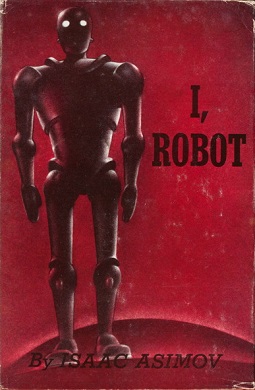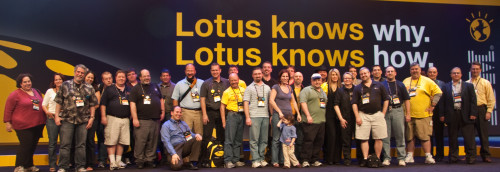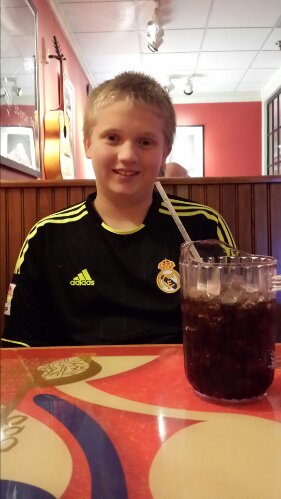Thirty Years – What A Ride!
Thirty years. It can feel like an eternity, or like just yesterday. That is how long I have been working in the IT industry, as of 2 weeks ago.
When I graduated the Swedish equivalent of High School in the spring of 1988, I did not know what lay ahead. If anyone would have told me where I would be 30 years later, I am not sure I would have believed them.
Computers, and especially programming, was my big interest. I had spent every available hour in the computer room in school. I went there during breaks between classes (if only 15-20 minutes) as well as during lunch break (usually 1 hour long. I learned to eat really fast, to maximize my time in front of the computer… Then after school I often spent 4-5 hours learning to program, either from books, magazines, or from other students.
After I graduated, I was not really motivated to go to college. But I found an intensive one-year college level education in systems programming and computer science. It would be classes 8am to 5pm, 5 days a week. Today you would probably call it boot-camp…
Unfortunately the class did not make, it needed a couple more students. So in the beginning OS September 1988,after about 2 weeks of classes, we were told to come back in January. We were encouraged to find a job or internship in the mean time. So I started to call around to different companies I found in the yellow pages.
After a few days I got a hit, a company was looking for a first line support technician. I sent in my application (I did not even have a formal resume) and a copy of my high school grades. A week later (on a Friday) I had an interview, and the following Monday I started working there. This company was Microsoft.
Needless to say, I learned a lot at Microsoft. I return to the class during the spring semester, worked at Microsoft during the summer break and then again after I graduated at Christmas.
After a year in the Air Force for the (then) mandatory military service, I intended to go back to Microsoft, but I was offered a job as a programmer at another company, and I jumped at that option. From there it just continued, via 5 years as an IT journalist and then over 20 years working mainly with Lotus (later IBM) Notes and Domino.
There are times when it feels it was just like yesterday I was writing Pascal code for a computer running CP/M-86 as operating system. Or when my coworker and I, who lived in the same apartment building (but on different floors and in different ends of the building) decided to run RG58 coax cable between out apartments, so we could network our computers. Or when I went scuba diving in Egypt and brought an IBM ThinkPad 701C (the model with the expanding keyboard) and a digital camera with me, so I could write a diary to publish on my personal website. Yes, it was pretty much a blog, way back in 1995…
But when I look at how technology has changed, it feel like the middle ages.
Our network at school (yes, we actually has one!) had a hard disk the size of a small shoebox, and with a capacity of 30 MB, to be shared between students and teachers. Yes, it’s not a typo. 30 Megabyte! Today most hard drives have at least twice that amount of memory just for cache…
Compare that with my mobile phone, on which I am writing this post while riding a bus from Dallas to Houston. It has 2185 times that memory (64 GB) built in. I have an additional 200 GB in the form of a micro SD card. This amount of storage would have been unfathomable 30 years ago.
Today we have internet access everywhere. I can sit in my car, in a restaurant or on a bus in the middle of nowhere and still have access to all the knowledge (not to mention cat videos) in the world. In fractions of a second I can perform a search that would have been virtually impossible 30 years ago.
I can turn on and off the lights at home, no matter where in the world I am. I can check the temperature in the different rooms and change the AC settings, if needed. I get an automatic alert if there is smoke I the house, or water where it is not supposed to be. And I can check the status of my laundry remotely.
I can talk to the computer, phone and other devices and have them turn lights on or off, tell me what the weather will be later that day or the next few days, or play any music I ask it to play. This is just like in Star Trek or 2001, except it is for real.
I can buy anything I need from the comfort of my home, or from anywhere in the world, and get it delivered within a day or two, sometimes even the same day.
At the same time I do miss the days back when I started with computers. It was like a new frontier, an unknown area where you had no idea what could happen next.
I still remember the excitement when I managed to create something new and cool, and I got it to work after spending countless hours working on it and troubleshooting the code. It is rare that I feel that excitement today, in the same way. But it still happens. .
I am very fortunate to be able to work with what I love, and have been able to do it for this long. I am looking forward to the next 30 years with great excitement.


















